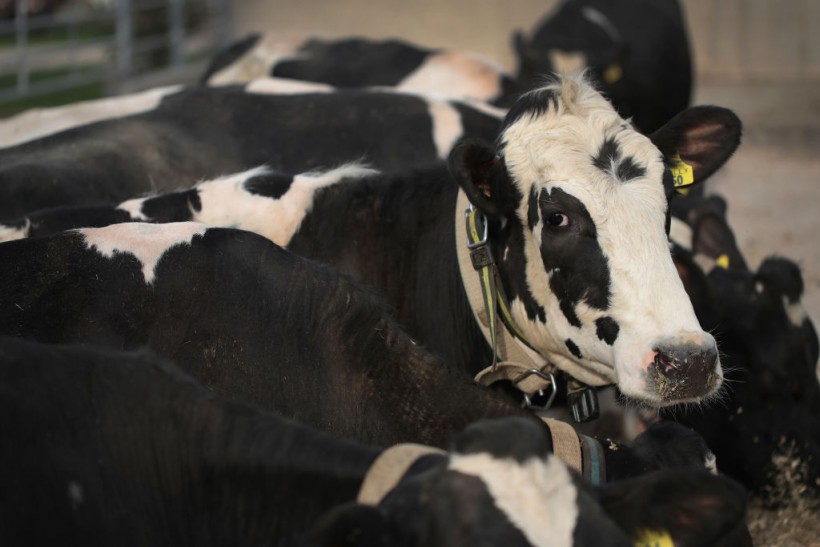
(Photo : Getty Images/Scott Olson)
Federal regulators say samples of milk have tested positive for fragments of the bird flu virus but they note that they are inactive due to pasteurization.
The United States Department of Agriculture (USDA) says while pasteurization kills the virus, it does not remove the presence of viral particles in milk and they do not represent an actual virus that may be a risk to consumers.
The FDA says it is testing unpasteurized milk directly from cows in affected herds with and without symptoms to understand how, and at what levels, pasteurization inactivates the virus.
A bird flu outbreak in dairy cows has grown to eight states.
The pathogen primarily causes illness in older cows and its symptoms include decreased lactation, low appetite and other symptoms.
Samples of milk at dairy farms in Texas, New Mexico, Idaho, South Dakota, Kansas, Michigan, Ohio and North Carolina have tested positive for the bird flu.
There has also been one human infection reported.
"This is a rapidly evolving situation and USDA, as well as state and federal partners are committed to sharing updates as information becomes available," the USDA stated.
A top scientist at the World Health Organization gave a dire warning about the dangers presented by the spread of bird flu to new species, noting that humans face an "extraordinarily high" mortality rate if infected, according to a report.
"This remains, I think, an enormous concern," the UN health agency's chief scientist Jeremy Farrar told reporters Thursday in Geneva, ScienceAlert reported.
But, the CDC considers any potential risk to the public to be low at this time. However, people with more exposure to infected animals do have a greater risk of infection.
Wild migratory birds are believed to be the original source of the virus. However, the investigation to date also includes some cases where the virus spread was associated with cattle movements between herds.
The FDA has long discouraged consuming unpasteurized milk.
It does not appear that the current outbreak has had any impact on the U.S. milk supply or consumer prices yet.
So far there have been no detections in commercial beef herds.
Egg producers are watching the situation closely after bird flu was found in chickens in two states.









